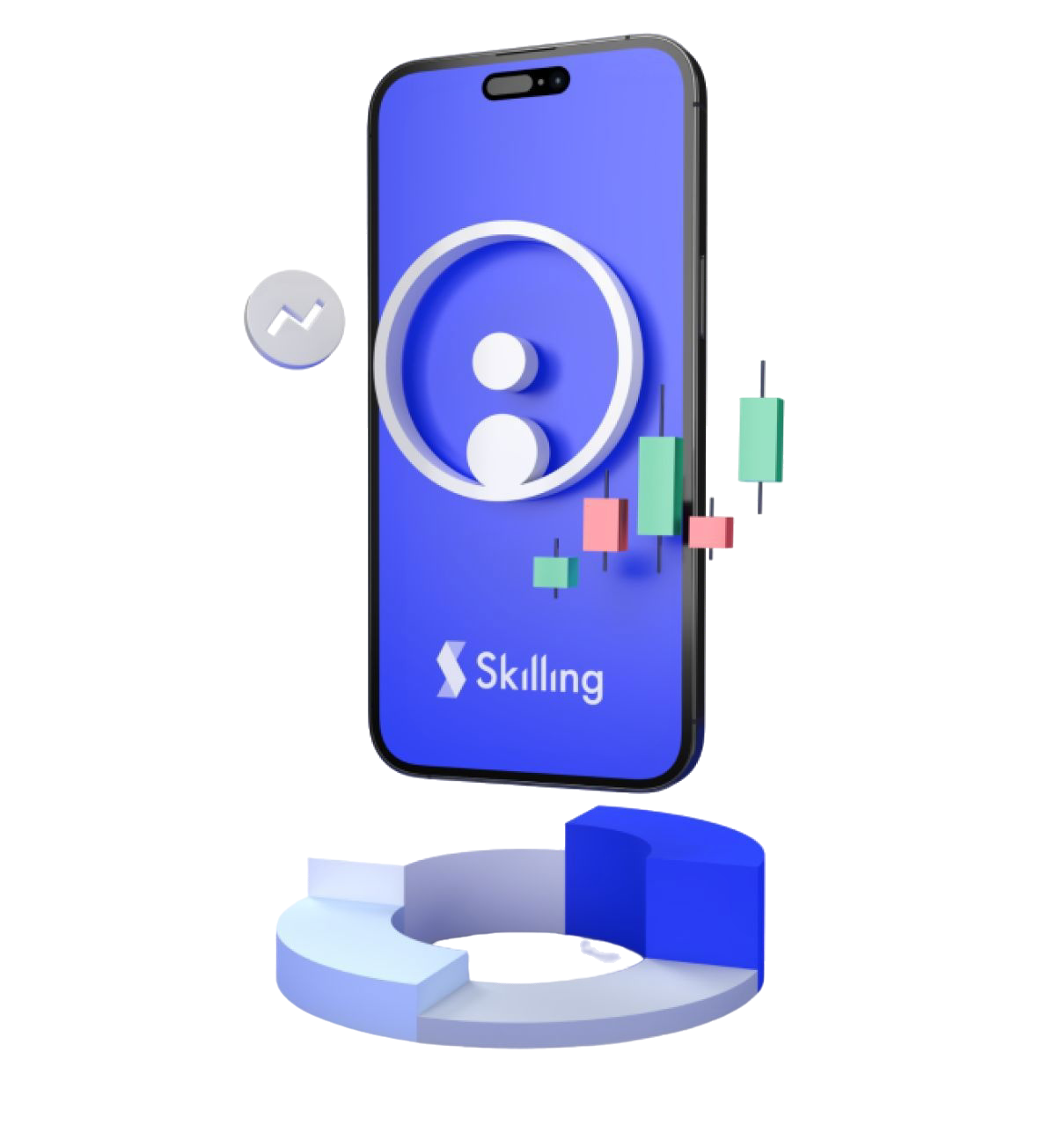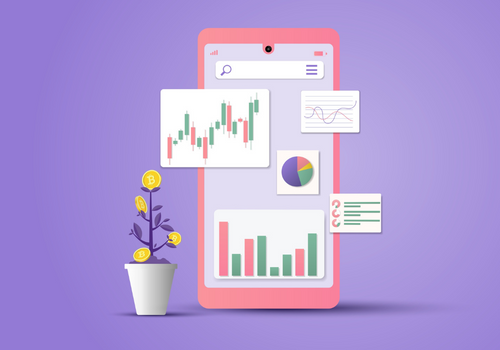Qu'est-ce qu'un courtier et comment choisir le bon pour trader

What is a broker?
If you're new to trading, you may have heard the term "broker" but not fully understand what it means. In simple terms, a broker is a person or company that acts as an intermediary between a buyer and seller in a financial transaction charging a fee or commission for their services. They can help you buy and sell stocks, bonds, forex, and other financial products, but it's important to choose the right one for your needs.
In this article, we'll explore how to choose one when trading forex or other financial products, how brokers make money, the platforms they offer, the importance of regulation, and why Skilling is a good choice.
How to choose the best broker for your trading?
Choosing the right broker is a crucial decision for any trader, as it can have a significant impact on the success of their trading activities.
Here are some important factors to consider when choosing a broker:
- Regulation
- Regulated brokers are required to follow certain standards and guidelines set by regulatory authorities, which helps to protect traders from fraud and unethical practices.
- Trading Platform
- It is important to consider the trading platform offered by the broker. It should be user-friendly, stable, and offer advanced features such as charting tools, technical analysis, and real-time quotes.
- Fees
- Different brokers charge different fees, such as spreads, commissions, and swaps. It is important to compare fees across different brokers to find the one that offers the most competitive rates.
- Customer Support
- It is essential for any trader, as it can help to resolve any issues or concerns that arise during the trading process. Look for brokers that offer responsive customer support via email, phone, or live chat.
- Educational Resources
- Webinars, tutorials, and market analysis can be very helpful for investors looking to improve their skills and knowledge.
Entraînez-vous avec un compte démo
Essayez notre compte démo et découvrez les conditions réelles du marché.
77% des comptes CFD des particuliers perdent de l'argent.


How do brokers make money?
Brokers make money in a variety of ways. They can offer different pricing models and fee structures, so it is important to compare options and choose the one that best suits your trading needs.
- Spread is the difference between the bid price and the ask price of a currency pair and is the primary way that brokers make money. They may offer fixed or variable spreads, and the size of the spread can vary depending on market conditions and the broker's pricing model.
- Commissions are another way that brokers make money. They are typically a percentage of the trade value. It is charged in addition to the spread and represents another source of revenue for the broker. Some brokers may charge a flat fee per trade instead of a percentage-based commission.
- Swaps are the interest rate differential between the two currencies in a currency pair and are charged by brokers when positions are held overnight. This fee can be positive or negative, depending on the direction of the trade and the prevailing interest rates.
Leverage is another way that brokers can make money. It allows traders to open larger positions than their account balance would otherwise allow, and brokers typically charge interest on the borrowed funds.
What are the platforms brokers offer?
Brokers offer a variety of trading platforms for their clients to use, each with its own unique features and benefits.
MT4 and MT5 are among the most popular trading platforms and are offered by many forex brokers. They are known for their user-friendly interface, extensive charting capabilities, and the ability to automate trades usinacg expert advisors (EAs).

cTrader is another popular platform that is known for its advanced charting capabilities, fast order execution, and transparent pricing. It also offers a feature called "cAlgo," which allows traders to automate their strategies using the C# programming language.

In addition to these popular platforms, many brokers also offer their own proprietary trading platforms. These include TradingView, ProRealTime, and many others. Some traders prefer these platforms for their unique features, such as advanced charting tools or social trading capabilities.
Why regulation is important to brokers?
Regulation is crucial to the financial industry and especially to brokers. It helps to ensure that all people involved operate in a fair and transparent manner, protect clients' funds, and maintain high ethical standards.
Regulated brokers are required to comply with strict rules and guidelines set by financial regulatory authorities, such as the Financial Conduct Authority (FCA) in the UK, the Securities and Exchange Commission (SEC) in the US or the Cyprus Securities and Exchange Commission (CySEC) that is responsible to ensure Cyprus’ financial markets compliance with EU laws and regulations. These regulations typically cover areas such as client fund segregation, capital requirements, and risk management.
One of the most important aspects is the protection of clients' funds. Regulated brokers are required to keep client funds separate from their own operating funds, which helps to prevent clients' funds from being used for any other purposes. In the event of insolvency, clients' funds are protected and can be returned to them.
Regulation also helps to ensure that brokers operate in a fair and transparent manner. They are required to disclose all relevant information to clients, such as fees, charges, and trading terms.
Finally, regulated brokers are required to maintain high ethical standards in the industry. Regulators set guidelines on issues such as conflict of interest, insider trading, market manipulation and enforce penalties for violations of these guidelines.
Why choose Skilling?
Skilling has a strong reputation in the industry thanks to our regulation and commitment to providing traders with a safe and fair trading environment. Skilling is regulated by the Cyprus Securities and Exchange Commission (CySEC) and the Financial Services Authority (FSA) in Seychelles, ensuring that we comply with strict regulations and guidelines.
Traders choose Skilling for its wide range of financial products, including CFDs in forex, commodities, stocks, and cryptocurrencies. This allows them to diversify their portfolios and take advantage of various market opportunities. Skilling provides advanced, user-friendly and powerful trading tools and platforms, such as the popular MetaTrader 4 (MT4) platform and their proprietary platform, Skilling Trader.
Trading conditions are also very competitive, with tight spreads and low commissions. This makes it a cost-effective choice for traders who want to keep their trading costs low. Skilling also provides traders with leverage of up to 30:1 for Valutahandel, which can help them make the most of market opportunities.
Customer support is another key area where Skilling excels. Their customer support team is available to assist clients with any queries or issues they may have.
Last but not least, it provides a wide range of educational resources: webinars, trading guides, and market analysis help traders improve their skills and knowledge.
Pas de conseil en investissement. Les performances passées ne garantissent ni ne prédisent les performances futures.










